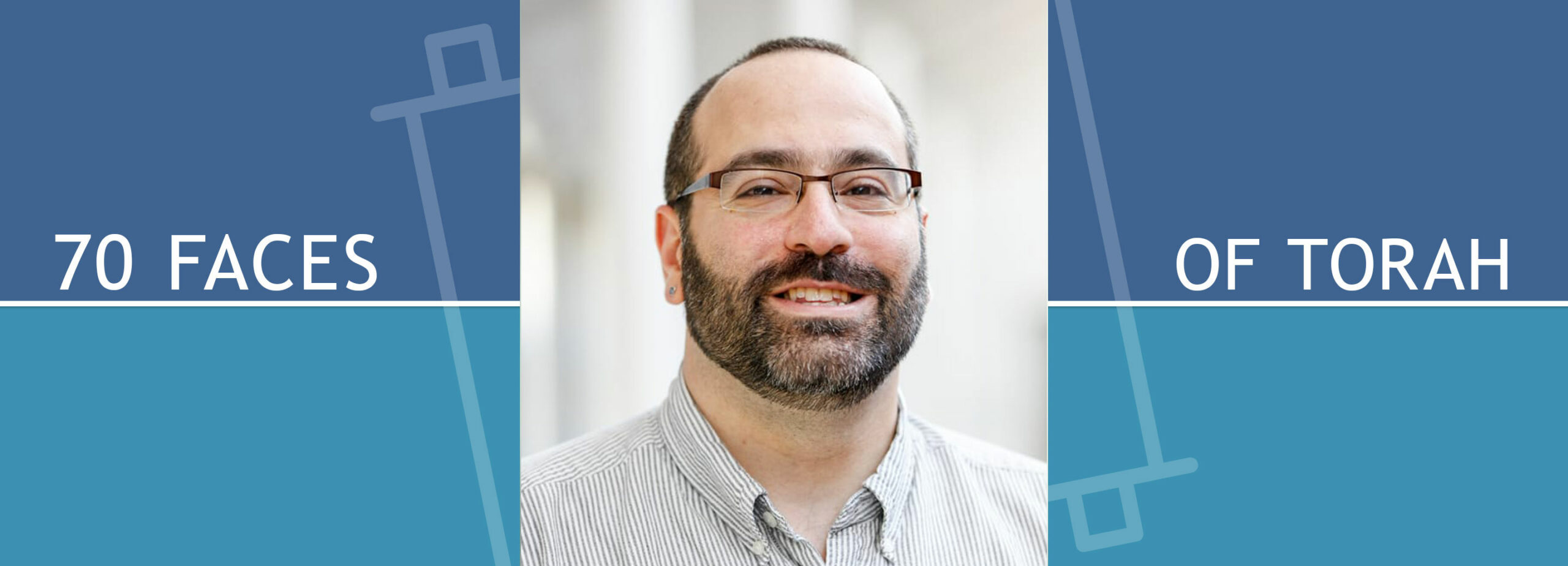Community Blog “One Thing I Ask of YHWH: Humility and the Spirituality of Speech”

This reflection is an excerpt from the Hebrew College High Holiday Companion, published in August 2017, for study and reflection during the High Holidays. Learn more and order your copy.
It is customary to begin reciting Psalm 27 on the first day of Elul, one month before Rosh Hashanah, and continuing through Sukkot. Like the sounding of the shofar, this twice-daily practice (morning and night) is intended to help us reflect on our beliefs, questions, hopes and fears as we prepare for a new year.
When I revisit the psalm this year, I find myself drawn to verse 4:
“One thing I ask of YHWH; this do I seek: to dwell in the house of YHWH all the days of my life, to behold the beauty of YHWH and to visit God’s abode.”
As a spiritually-oriented person, who finds the path of teshuvah, of turning and returning to self, other, and God, both daunting and promising, I find the poet’s words deeply resonant. My attraction to this snippet of text is enhanced by the interpretation of the eighteenth-century, Hasidic sage, Rabbi Yehiel Mikhel of Zlotchov. Why, asks Reb Yehiel Mikhel, does the psalmist need to say, “this do I seek” after already stating that he has a request of God? The rebbe’s (master) answer is that what appears to be a mere literary flourish is, in fact, a profound lesson on humility. By adding the seemingly extraneous phrase, the biblical poet is urging us to remember that even when we “behold the beauty of YHWH” or feel at home in God’s “house,” we must understand that the journey is not over.
The words “this do I seek” are intended to guard against spiritual arrogance and/or complacency. While it is important to acknowledge personal growth and the transformative power of religious experience, we human beings are limited, and therefore, must continue searching, questioning, and contemplating, knowing that there is no end to the process. How could it be otherwise, when dealing with God and issues of ultimate concern; in the words of our Hasidic preacher, always be aware that there is “a greater rung of understanding” to be reached beyond our current level of comprehension.
This lesson was brought home for me with unusual force through a recent experience co-teaching a course on the Psalms with a Catholic colleague for a diverse group of Jewish, Christian, and Unitarian Universalist graduate students and seminarians. In fact, among the most meaningful and humbling experiences for me was our discussion of Psalm 27:4. Three interrelated questions framed our discussion of this evocative text:
- Where do you experience God’s presence or the sacred most readily or intensely?
- What is one significant challenge you experience along your spiritual journey?
- Who are the people that have been most helpful to you in your ongoing search for meaning and purpose?
Listening to the broad range of responses from this diverse group of thoughtful and caring seekers, was inspiring and thought-provoking. Through our dialogue, I came to appreciate more deeply my own strengths and limitations, our similarities and differences, and the opportunity for growth in community. Throughout the conversation—and for the remainder of the course—I heard the Zlotochever Rebbe’s voice in my head, urging me to continue the search.
As we enter a new year, let us do so with renewed generosity and humility, sharing our insights with others and listening carefully to their experiences seeking out God’s beauty, living in different rooms in YHWH’s great “abode”.
Rabbi Or Rose is the Director of the Miller Center for Interreligious Learning & Leadership at Hebrew College in Newton Centre, MA.


